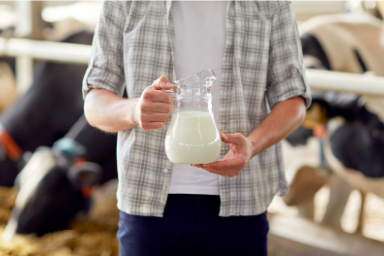 The spread of COVID-19 and the resulting lockdown across the country has dramatically changed many things, including the work of the Scottish Food Coalition. I’m sorry to report the disappointing news that the Good Food Nation Bill will not be introduced in this parliamentary term. It is entirely right that the civil service, Scottish Government and Scottish Parliament prioritise legislation to protect lives and navigate the complex challenges facing the nation. Whilst we recognise that this is a necessary decision by the Government, our calls to policy action which should underpin the bill have never been more relevant. COVID-19 is a health emergency, with thousands losing their lives and tens of thousands bereaved. Businesses are struggling to stay afloat, many workers have been placed on furlough while others have seen pay or hours cut, or lost their jobs altogether. We have long been concerned of the insecure working conditions and zero-hours contracts facing countless workers in the food system. Rightly following the guidance during the outbreak, restaurants, cafes and hotels across the country have closed their doors; consequently, thousands of people in the catering and hospitality sectors have found their jobs disappearing overnight. Within days, industries reliant on those markets, such as high-value creel caught shellfish, began to crumble too. This has forced producers, such as the shellfish fisherfolk to tie-up in port. The closure of cafes and restaurants has also wreaked havoc on the dairy industry, with farmers forced to dump tens of thousands of gallons of milk due to a massive slump in demand. These job losses are only adding to unconscionable number of people who lack adequate income to afford food. Asurvey recently released by Citizens Advice Scotlandshowed that 34% of people are concerned about their ability to pay for food and other essentials. The Bringing food to the table report, also published by Citizens Advice Scotland back in 2018 demonstrated that these concerns are not new; 45% of respondents had, at some point in the prior 12 months, worried about running out for food before there was money to buy more. High levels of food insecurity pre-date the outbreak, years of austerity, an inadequate welfare system and insecure working conditions have weakened society. Many of these challenges – though more acute now – are not new. The Scottish Food Coalition has been broadcasting about our broken food system for many years now. And while the full effects of the outbreak are yet to be seen, the fact that food lies at the centre of many of them is clear. It is also clear that many of these problems were not created by the current crisis but exacerbated by it. These exceptional circumstances have brought into sharp relief the essential role of food, and the food system in each of our lives. Though the story is not all doom and gloom. As well as highlighting the underlying deficits in our food system, this crisis is highlighting some examples of what a new system could look like. We have seen communities coming together to support each other. We have seen consumers, facing shelves empty of toilet paper, eggs and pasta, jolted into thinking beyond their weekly supermarket shop, taking up food boxes, community deliveries from local food producers and a general shift towards healthier and more sustainable buying. We have seen chefs and catering businesses join forces with their competitors to share deliveries, and provide food to those unable to access food themselves (read more about this in our recent Holyrood magazine article). These practices can be the norm, and not the exception. If we put time and energy into caring for our food system, it will care for us in return. It will deliver on the health and livelihoods of people and our environment – not just in the short term, but for the long haul. What does caring for our food system look like? Firstly, it needs to be someone’s job (like a Food Commission) to look after the food system - to monitor and report on our progress on moving towards a healthier, fairer and more sustainable Scotland. Secondly, we need to actively define the core principles guiding our food system – so the underlying purpose is not solely chasing profits, but also promoting societal welfare. We all have a fundamental human right to nutritious food that has been produced with care for the environment and people. The food system will serve all of Scotland far better if it centred around ensuring the delivery of this right. When we emerge from this crisis, we should look to build a better food system: a system in which food is the solution and not the problem; a system in which people are secure in long term employment with fair wages; a system in which Scotland’s environment is enhanced through food production rather than compromised by it; a system which promotes healthy living rather than facilitates diet-related illness; a system with dignity at its heart that is fairer, healthier and more sustainable for all of us. COVID-19 serves as a reminder of the failures inherent to our food system but it can instead mark a turning point in our approach to food governance. We have seen the stark consequences of a broken food system – it’s time we fixed it. The bill may have been delayed but the asks of our campaign have never been more urgent.
2 Comments
7/23/2020 06:08:41 am
Reply
Leave a Reply. |
AuthorBy Stephanie Mander, Scottish Food Coalition |
Proudly powered by Weebly

 RSS Feed
RSS Feed